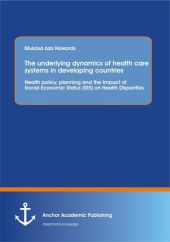 Neuerscheinungen 2014Stand: 2020-02-01 |
Schnellsuche
ISBN/Stichwort/Autor
|
Herderstraße 10
10625 Berlin
Tel.: 030 315 714 16
Fax 030 315 714 14
info@buchspektrum.de |

Victor Vrublevski
Security or electronic concentration camp? Persons` identification techniques, errors, consequences
Erstauflage. 2014. 56 S. 235 mm
Verlag/Jahr: ANCHOR ACADEMIC PUBLISHING 2014
ISBN: 3-9548926-8-5 (3954892685)
Neue ISBN: 978-3-9548926-8-6 (9783954892686)
Preis und Lieferzeit: Bitte klicken
The research analyses the following problems: Decision and risk at immigration service (police) work, remote identification, biometrical systems and identification, probability of identification errors and their consequences, identification algorithms and their implementation, morphological analysis for decision making, practical experiments.
Research novelty: the research links up probability, risk theories with their practical application at immigration service work;
Tasks of the research:
1) To find out risk factors;
2) to analyse risk impact on decision making;
3) to define risk diminishing factors;
4) to put into practice risk diminishing factors.
Research methods:
The theoretical ones: To analyse references and service documentation;
The practical ones: Observation, surveys, experiments, analysis.
Chapter 2:
Contemporary people in the civilized world, especially the young ones, may justly be defined as net generation. This metaphor is not an exaggeration since one can easily notice that generally we write more messages than letters, read or better to say skim more announcements, advertisements than we read literature, pay more by credit card than by cash. Taking into account the tendency to digitalize everything that is electronically nonnumeric, paper money will be eventually replaced by e-money. Though this implementation process is not going on smoothly due to the considerable concerns about the impact of e-money on tax collection and criminal activity but nevertheless it is developing.
One example of some increasing digitalization that is a sad fact that those now who write more than others are generally pupils at schools. The conveniences brought by penetrating digitalization process seem to be the progress itself, but nevertheless they possess not only advantages, but hide disadvantages as well. As one of them is inclusive, general regress of reading skills among modern humans which as a consequence may eventually lead to readers` complains that I can not understand what here is written. Reading, in its turn, is in direct relationship with writing because reading skills influence writing skills. Reading ability most often precedes writing and there exist strong reading-writing link because instructions in reading can be effective in improving writing and generally speaking one may conclude that the worse one reads the worse one writes.
Comparative irrelevance to read and write will cause far-reaching consequences not only in teaching methodology, but in paperwork as well. General decrease in writing skills and as the consequence substitution of handwriting with taping may also deprive investigators of some vital evidences because even handwriting´s pressure may unravel its author´s firmness, vitality, capability to work, endurance. Nevertheless one has to admit that exhausting evidences from handwriting may be multiply compensated by the ones from e-mails, social networks.
The research conducted in the USA showed that in 1960 young men read newspapers as much as their fathers, grandfathers but in 2000 young men aged 18-29 read half of the amount read by their parents. And the less one reads the less one is able to read which manifests itself in inability to decode words, comprehend text, activate personal knowledge during reading, Unfortunately reading is not inherited ability, and it is not only spelling of words, but also drawing comparisons, conclusions and understanding meaning of the text. Here one can draw very important conclusion that reading is not simply the ability to spell words, but more complicated one: comparing facts, drawing conclusions. Even if contemporary people read something, their reading materials consist mainly of announcements, advertisements and operating instructions. Such texts are exceptionally interactive containing a lot of media forms. The above-mentioned interactive insertions are called adaptations which usually manifest themselves in the form of drawings, animation and video. The adopted text, besides its evident advantages of being easily and quickly comprehended by contemporary TV and net-generation, conceals an inevitable disadvantage - atrophy of reading skills. One should remember that original legal text, like law, decree or regulation does not contain any of the above-mentioned adaptations and each official must be able to read it because otherwise being misunderstood it may cause serious consequences. If a person does not read his or her reading skills will diminish gradually because good readers read considerably more than poor readers both in and out of school . Legal texts intentionally composed to differ from other ones particularly with terminology, if-then links therefore their textuality seems to be pragmatically uninteresting f


